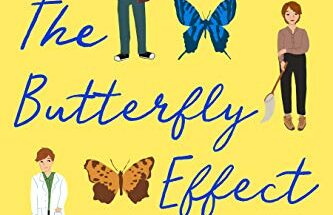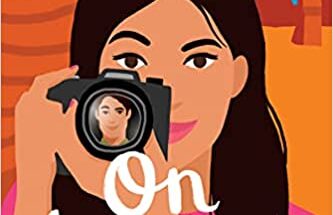 Heather Webber is the author of more than twenty mystery novels, including the Nina Quinn series, and has been twice nominated for an Agatha Award. Her new novel, Midnight at the Blackbird Cafe, is a captivating blend of magical realism, heartwarming romance, and small-town Southern charm. I was delighted to talk to Heather about her writing process, and the inspiration for her new novel.
Heather Webber is the author of more than twenty mystery novels, including the Nina Quinn series, and has been twice nominated for an Agatha Award. Her new novel, Midnight at the Blackbird Cafe, is a captivating blend of magical realism, heartwarming romance, and small-town Southern charm. I was delighted to talk to Heather about her writing process, and the inspiration for her new novel.
What was the inspiration behind Midnight at the Blackbird Café?
In 2014, my husband and I signed up for Pandora, the music streaming service, and started filling our playlists. The Beatles are a favorite, but for some reason I’d never heard “Blackbird” until Pandora suggested it. I became obsessed with the song, listening to it repeatedly. When that kind of thing happens, the writer in me pays attention. I was captivated with the concept of broken wings and how emotional wounds can keep many from being able to metaphorically fly. And if blackbirds could, what would they sing to us in the dead of the night? What do we most want to hear? Blackbird research led me quickly to the Song of Sixpence with its “four and twenty blackbirds baked in a pie,” and then a tidbit in Celtic folklore revealed that blackbirds were considered guardians and messengers of the “Other world.” With all that, the heart of this book took shape.
You are an incredibly prolific writer—if my count is correct, Midnight is your 29th novel in 17 years (20 of them have been published in the last 10 years). Could you share your secret? What is a typical writing day for you? Do you take breaks between projects? Work on more than one project at a time?
As much as I wish I could, I can’t work on more than one project at once. I’ve tried—and failed—many times. As I start a story I try to write consistently—a certain amount of words or pages a week—because beginnings are the hardest for me, and if I don’t have a schedule I’ll do everything and anything to procrastinate. As the story hits the middle, I tend to write in fits and spurts; a lot of words one week, hardly any the next. Toward the end, I write six to eight hours a day – my fingers simply trying to keep up with my brain as I wrap up all the loose ends. Each book takes anywhere from three to six months to complete, not including the revision process. I try to take a week or two in between projects, but more often than not, I’m already plotting my next book during that time. A writer’s mind rarely shuts down completely.
Your novels fall under many genres—historical romance, cozy mystery, paranormal—and now with Midnight you are dipping into magical realism. Did you ever have any fears about losing readers when you move into different genres?
I’ve haven’t worried (too much!) about losing readers because my books—and I think my long-time readers would agree—have had a natural flow, one to another. My early romances had a heavy dose of mystery in them, which led to me writing mysteries. My early mysteries were humorous with a touch of romance and featured a family who puts the fun in dysfunctional. That led to my mainstream fiction books, which were equal parts mystery and romance. Those revolved around a broken but loving family, and it’s also the series where I first introduced the paranormal with my main character being psychic. From there, I started writing both my witch series, which were filled with magic, family, and community, and had a good bit of romance.
Midnight is a combination of all these books—with only a couple of differences. One being that the magic in this book isn’t explained, it just is, which is the truest definition of magical realism. This book has also allowed me to dive deep into my characters’ emotional journeys, something I’ve been wanting to do for years. I recently dusted off (literally) the first book I ever wrote—one that wasn’t published. It was a women’s fiction novel with magical elements, so it feels like I’ve come full circle with my writing. This is a genre I love, and I hope it’s one that’ll stay in my life for a long time to come.
I am a firm believe that writing is writing, no matter what genre, but I am curious to know if you think writing in one genre has had an effect on how you approach others. Like, what mystery writing techniques do you apply to a stand-alone like Midnight?
When I began this book, I knew I wanted to have a mystery subplot revolving around a car accident that had happened twenty-five years before the story started. While the accident wasn’t the main focus of the book, it played an important role and shaped the future of many characters in the story. As the story unfolded, I left clues about the car accident, the same way I would have had the book been a straight mystery. And while there’s no big “whodunit” to solve I hope that when readers reach the conclusion they’ll recognize the trail I left for them—and perhaps some of them will even figure out the big twist ahead of time.
Some of my favorite books feature settings I picture living in, and I fell hard for the town of Wicklow in Midnight at the Blackbird Café. Could you talk a little about how you think about setting?
Setting to me is as much a character as the people in a story. It sets the mood and tone for the book. For this book, I made sure to show readers early on that there’s a little bit of magic in Wicklow’s mountain air. Yet, like everyone else in this book, Wicklow, a former artist’s colony, is a little bit broken and in need of healing.
Midnight at the Blackbird Café is filled with a sense of magic—where do you find magic in your own life?
Roald Dahl wrote: “And above all, watch with glittering eyes the whole world around you because the greatest secrets are always hidden in the most unlikely places. Those who don’t believe in magic will never find it.”
This quote resonates with me because I see magic everywhere. Sometimes in people, but mostly in nature. For instance, recently I noticed that an ash tree next to our house hides a cat’s face in the design of its bark. I could create a whole story just from that alone. I see magic in the flutter of a bee’s wings. In an act of kindness. In the veining of a leaf. In an artist’s hands. If you look for magic, you’ll always find it, and I’m always looking.



1 comment